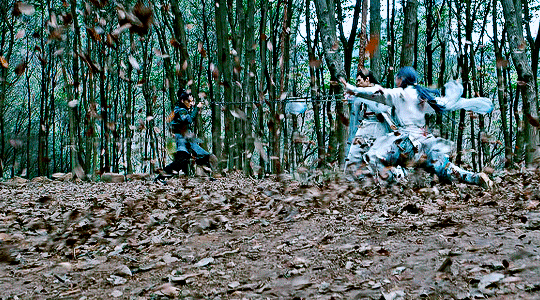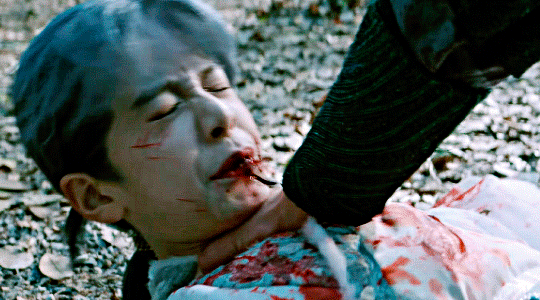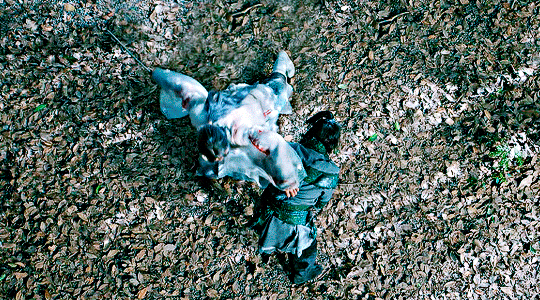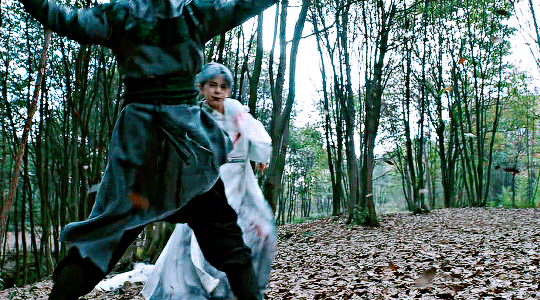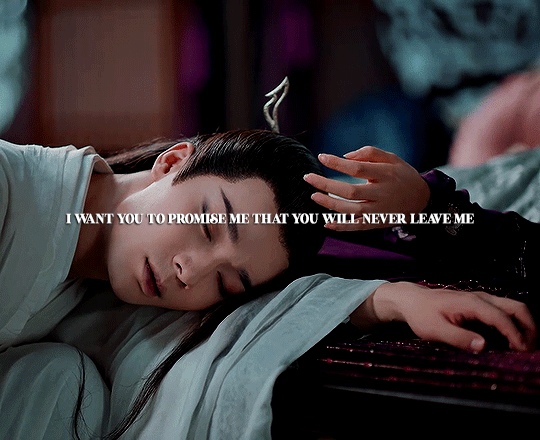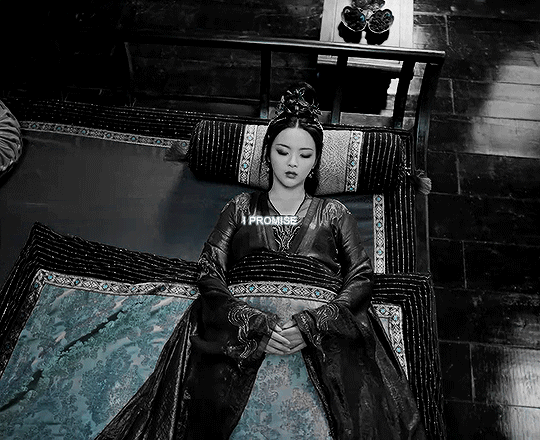Text



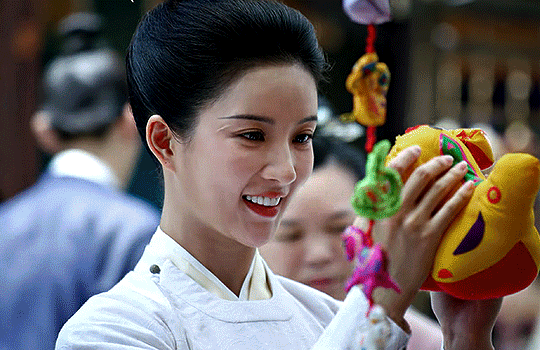
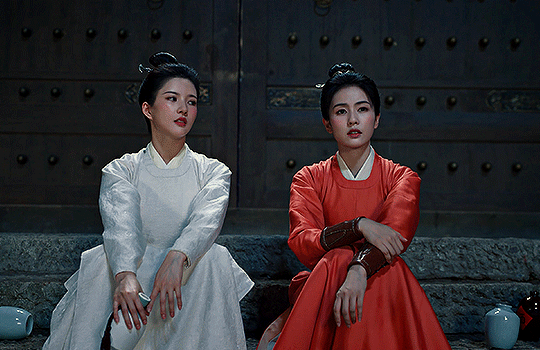
Why did you suddenly come out of the palace, Your Highness? Because I missed you, of course.
Story of Kunning (2023)
1.28
407 notes
·
View notes
Text
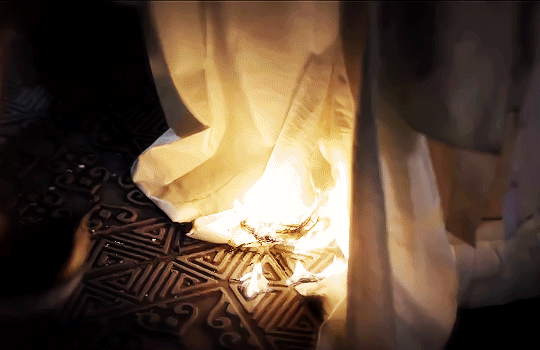
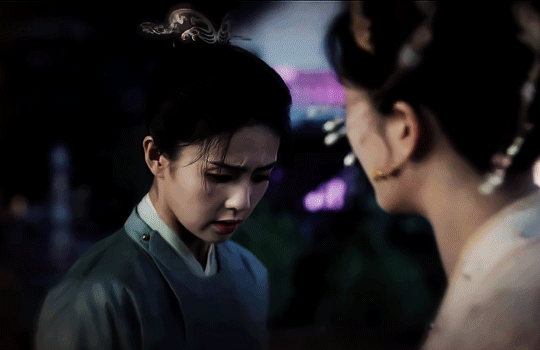
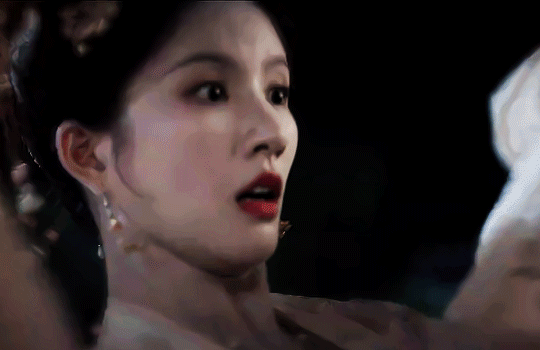
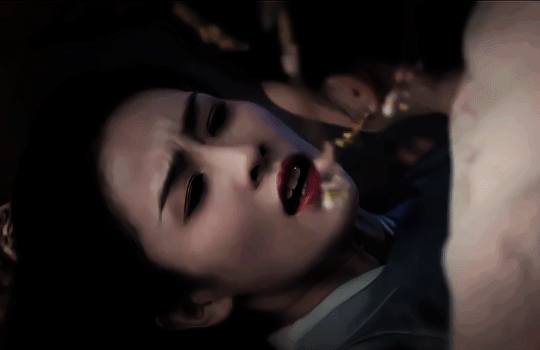

I'd mistakenly caused the First Princess, Shen Zhiyi, to fall in love with me.
Story of Kunning Palace (2023)
446 notes
·
View notes
Text

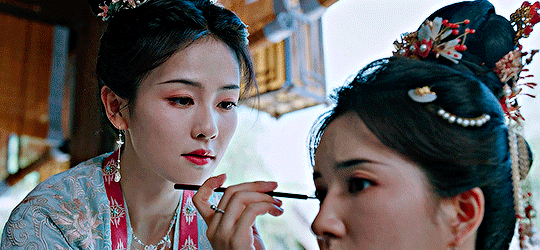

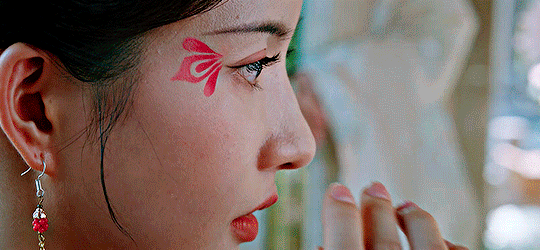
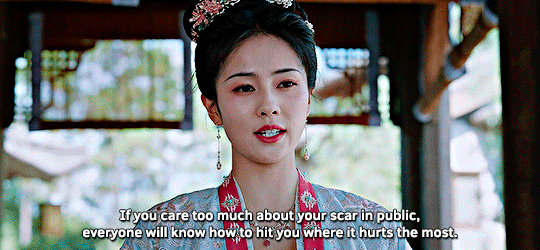
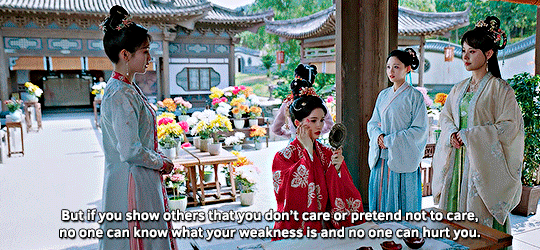
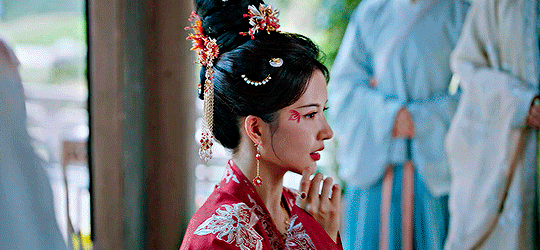
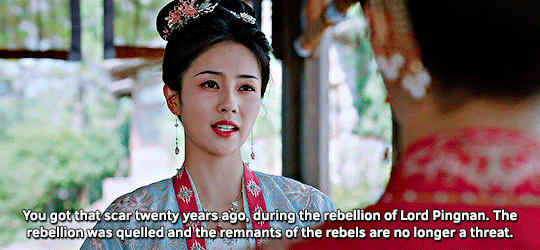
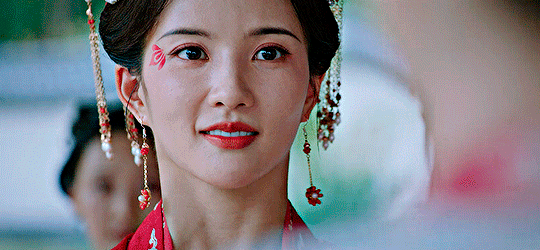


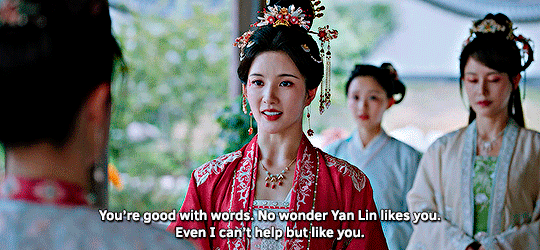
STORY OF KUNNING PALACE 宁安如梦 (2023) → EPISODE 03
338 notes
·
View notes
Text
wuxia, xianxia, and cultivation differences meta
translations: wuxia 武俠, xianxia 仙俠, and cultivation 修真/修仙 (xīuzhēn/xīuxiān)
think i’ve seen posts on this eons ago, and i’m pretty sure there are tons of these online, but since this has been written up already let’s just have another one.
wuxia 武俠
wuxia and xianxia sound similar, but basically for wuxia it is about the pugilistic world (江湖 jiānghú). It is relatively more down-to-earth, and people practice martial arts (“kungfu”) in their current life – they do not do it to become xians (仙) and gods (神) however.
Like Thousand Autumns and Faraway Wanderers/Word of Honor, it has more historical background and ties to the current court and kingdoms, because people are living in the moment and concern themselves with worldly issues.
Martial arts may seem unrealistic, but in view of chinese fantasy it would be considered “real”. It consists of fighting moves and internal energy, which they call qi or nèigōng (內功), and at times you see people flying around, climbing hills and jumping across rooftops which is qīnggōng (輕功).
xianxia 仙俠
A level up would be xianxia, where characters in the story cultivate to become xians (and gods, like in the heaven official’s blessing). They don’t really care about earthly issues here now, because their ambitions lie beyond the current world, and cultivation, getting stronger, and an immortal life are majorly all their goals.
You may not always see them working towards that purpose, such as in mdzs they are considered a lower-xianxia society (低魔), meaning people don’t go through all the steps of cultivation and only stay at the stage before the “golden core” stage.
In xianxia, characters still learn basic fighting moves aka. martial arts, but to direct the internal energy they use línglì (灵力), zhēnqì (真气), and fǎlì (法力), all xianxia terms you commonly see. “neigong” is practically nonexistent in this genre. That’s why people building up their “neigong” instead of “lingli” are likely never going to be able to cultivate.
cultivation 修真/修仙
A subgenre in the xianxia category would be cultivation. Characters actively go through the stages of cultivation, and likely for the MC, because they are the main character, they successfully become a xian and exit the world at the end of the novel.
There are many stages of cultivation, usually defined at the beginning of the novel in the synopsis, and a typical example of the different levels would be this:
练气,筑基,金丹,元婴,化神,炼虚,合体,大乘,渡劫
And with a cursory search, an English translation would be something like this, albeit not with all the cultivation ranks identified.
Qi condensation (练气), Foundation establishment (筑基), Core Formation (金丹), Nascent Soul (元婴), and the names after that vary too greatly with translation and fandom so I’ll jump straight to Immortal Ascension
extra info: getting into the philosophy of it all
It’d be interesting to note that the word “xiá” (俠) permeates all these genres. This is something akin to the concept of “hero”, but not at all also, and I’d love to speak more on this but this post has already gone way longer than I hoped it would be, so perhaps another day.
Regardless, it is interesting to note that wuxia has a greater emphasis on “xia” than xianxia. (some joke that cultivation doesn’t have the word “xia” in it, and much of that is because characters have foregone heroism and focused on gaining powers and working towards ascension instead). As a result, wuxia is more confucianism-oriented, though not without its taoism and buddhism influences.
xianxia, on the other hand, is mainly derived from “dào” (道), from taoism, which is another lengthy concept if I ever get to it.
And some may have heard of the “farming” genre, 种田 (zhòngtián). This has to do with golden fingers (mary sues) in imperialistic china, earning a wealth of money, and all that. It has nothing to do with cultivation, alike they sound in english.
that’s it for now, hmu if you wish to ask/discuss!
(and apologies for the pinyin translations, hope it’s understandable still! formally writing pinyin they are supposed to be two separate words not one.)
3K notes
·
View notes
Note
i know that like if we want the rewards of being loved we must submit to the mortifying ordeal of being known but like what are the rewards of being loved? are they really worth all that? you talk of love and loving often and sometimes im so in your corner but other times it just makes me angry. is it really all that great?
This ask has been in my inbox for a number of days now, and honestly, every time I try and contemplate what it’s asking my mind stalls. “What are the rewards of being loved?” reads like like asking what kind of cheese the moon is made of, or how much dark there is before the dawn. It’s definitely a question! Theoretically it has an answer! But what kind of answer can I give that will make sense, since apparently....the reward of being loved isn’t being loved.
I mean, in the original essay, the one that gave birth to the meme, the trigger for “being known” is not really all that mortifying. Timothy Kreider emailed his friends about a herd of goats he was renting. Someone accidentally replied-all “oof,” which inspired the reflection about the gap between how we imagine people see us (charmingly off-beat renter of goats, perfect) and how we are actually known by the people in our lives (someone who fritters away their income renting a herd of goats for no discernible reason.) Kreider concludes that this actually isn’t a gap at all---we are all fully capable of loving people profoundly while still seeing their faults, finding things they do annoying, and commiserating with mutual friends about that person’s quirks.
I as an individual might like to think I am exempt from this, that I am dazzling and charming and the people who like me don’t even notice my foibles, but the truth is they do, it just doesn’t effect their love for me.
Hence the “mortifying ordeal”---not only do I have to make myself vulnerable to someone else’s gaze, but I then have to accept that the people who like me do it in full knowledge of who I am. At any given moment, people are walking around fully aware of the fact that I’m a know-it-all and a bad loser, that I am not always emotionally available; my first instinct is to argue and my taste in music is somehow pedestrian and pretentious at once, that I am mostly trying, and a lot of times I fail. All the less-than-perfect things inside me are not secreted out of view; they are very obvious to anyone who has spent enough time with me, who has chosen to be around me for more than a half hour.
And that’s the people who like me!
So if we didn’t want to be known, deep down under all the squirming icky, insecure mess that makes being known such a terrifying prospect, then you’re right. The ordeal isn’t worth it, we should all pack up and go home, because people are always going to fucking see us. The random coworker who watches your face during a meeting knows you; the cousin who listened to your snarky comment knows you. You stumble through the world being known, inevitably, inexorably.
But being seen is necessary to be truly loved---and when it comes down to it, to be loved is to be real. Kreider references The Velveteen Rabbit in his follow-up article, appropriately titled “I Am a Meme Now.” I don’t think he’s wrong to draw on the idea that people observing our secret places, our weird faces, our strange comments and experience of the world makes them ultimate more real. Our experience lives inside us, in our head and impulse and feeling, so we are not objective in this---but we can’t escape all that leak out of us into the sight of others either. We can’t escape being known by someone who isn’t us, and rendered more than just our subjective selves through them. (In some ways, being known by someone else can be even truer than what we know about ourselves.)
The reward of all this---the only one that counts---is that sometimes, someone looks into your bloody beating insides and stays. They see your ugly expressions and listen to your nasty comments and peel back the heavy, wet layers of your intestines to see the guts beneath and still, they love you anyway.
It is the closest thing to a miracle most of us will experience.
9K notes
·
View notes
Text
jackdaw, wheeling in the sunset
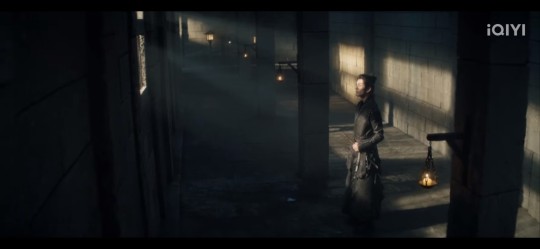
In the mountain, there is a jackdaw with feathers whetted into spines and blackened with poison, with eyes that chase the sun as it wheels across the sky, before dipping behind the snow-scabbed slopes.
-
Everyone who lives in the mountain is nameless, and so is the jackdaw. The jackdaw is known as Hanya Si, which is not a name, but an assignment.
-
The jackdaw scavenges for young orphans on the streets, those who are also nameless and fateless, to be consumed by Wufeng, the mountain. These foundlings will die anyway, snagged by their own downy wings among the thicket of knives that is the jianghu. The jackdaw sends them to the killing pools in the depths of the mountain, and teaches them to turn against others, and most importantly, teaches them to claw and slither and writhe and live by any means possible.
-
Too much yin in your body, a swindler of a physician tells him, grabbing his wrist on the street and trying to sell him a pill the size of an oriole egg.
The physician is dead by nightfall.
That is what happens when you look into the eye of Wufeng and feel the stab of its pulse and tap into the snakes' nest of its meridians.
-
Yun Weishan and Yun Que are not the real names of the pair of wishbone sisters that the jackdaw comes to care for.
All his other nestlings are dead. Some of them have been killed by the jackdaw himself, either by swift merciful strikes in the dark, or gentle poisonings that make them drowse off into dream and never wake up. Those are the weak ones, doomed to fail if Wufeng sent them out on its missions. Better for them to die painlessly by his hands, than be caught alive by Wufeng's enemies, and have their bodies and minds stripped away, sliver by sliver, down to bone and keening ghost.
The Yun sisters are not blood sisters; they meet for the first time, among a crowd of other Wufeng novices, calf-deep in the icy mire of the mountain's killing pool.
The moment of first eye contact between them is a lightning strike of a pact. Together, they slaughter everyone else in the pool.
They become attached to each other, sharing everything from food to bedding to half-remembered poems, to the dangerous wishes that they shouldn't make. They don't laugh openly, and they are careful with their talk as they move around the mountain, but Hanya Si knows that they dream, fiercely: in each other's arms, in resolute whispers, in torn lips where wounds translate to promises, in the back-and-forth transactions of jolting awake to nightmares and forlornly consoling the other.
The fused pair of them are a puzzling strut of iron-cold hope and despair that sits in Hanya Si's chest, clamping his heart, and he loves them both, unwittingly.
-
Ah, the sun! That distant three-legged crow that Hanya Si has always dreamed of catching. The blinding mass of it, racing away, always away, from the corpse of this earth.
-
Yun Que is a sparrow of a girl, the smaller and the stronger of the sisters: unassuming and pleasant, perfect for infiltration missions.
But if a bird mother can have favourites in its brood, then it is Yun Weishan that Hanya Si secretly favours.
He found her as a tiny child, wandering alone among the streets in the town of Lixi. Later, he learnt that her mother had been a despised concubine in the Yun household, who had hanged herself from the rafters of the family's ancestral hall, and after that, no one spared another glance at the leftover child.
Yun Weishan will be a different weapon: a bride. Wufeng will choose her groom, and she will go to him in a glittering sea of dowry, red as hawthorn and gold as the sun-touched clouds.
Hanya Si trains the Yun sisters ruthlessly. He cuts them down. He drags them through cycles of poisons and antidotes. Too often, his hands have crushed their windpipes to an inch of their last breath.
Wufeng will never be done with them, he tells them. Wufeng will take their bones when they die.
He teaches them the ways of the jianghu and its array of mannerisms and social codes. He teaches them to sketch maps in their eyelids, carry poisons in their sleeves, lower their lashes and offer only veiled eye contact with their potential targets. To fit themselves into stolen names. To scheme from the peripheries. To usurp positions and infiltrate hierarchies. To spin words into consolation, pry out layers of information. To impersonate sincerity. To kill in many ways and with nothing in hand. To die in many ways and still with nothing in hand.
Better to die than be caught alive by Wufeng's enemies.
He also feeds them and treats their wounds and teaches them to identify medicinal herbs and brew antidotes.
Wufeng will never let you go, he tells them over and over.
But he also tells them, if you ever find a way, then go, and never turn around, not even for a last glance. Never look back at the mountain.
This is the only conspiracy that he seeds into their hearts.
He shares bitter wine with the sisters in the evenings, by the light of the dying sky. In the shadows, leaning close toward each other, they look like a grim hook of a bird mother and its two starved fledglings, trapped in a desolate nest.
And every time, the sun leaves them behind on the mountain.
-
Wufeng turns everything into a weapon.
The sisters dream of freedom. That becomes a weapon.
Hanya Si falls in disconsolate love with the sun. The sun becomes a weapon.
Hanya Si stays away from the sun, thinking he will learn to live in its shadow. But that too, is a weapon against him.
-
Yun Que dies first.
Hanya Si buries her himself on a wind-chewed plateau, clawing the scree apart and lowering her into the unwilling earth. Neither she nor the mountain want each other.
Yun Weishan, not trusting the mystery around her sister's death, never truly forgives him.
-
You will never see the peak of the mountain that is Wufeng. You will never see the tip of the knife that is Wufeng.
The peak is hidden in thick cloud, unlit by the sun. You cannot map the land around the mountain, nor can you find your bearings; the mountain will not help you.
As for the knife that is Wufeng, they say it has many points and no point, shrouded in darkness, moving too swiftly for the naked eye to detect. Even when the blade strikes, you will never see its tip, because by then it will be buried deep in your heart, and nothing is more opaque than the human heart.
Or perhaps the truth is that Wufeng is just another broken knife of the jianghu; it doesn't need a single point; every edge cuts just as sharply.
-
He tells Yun Weishan to go. She has passed the test.
But the jackdaw, nameless and fateless, remains where he is, on the carnage-strewn steps where a procession of blood-red brides had passed earlier.
Yun Weishan is a fleeting cloud at the edge of his sight. To look upon her face again would be hope and despair for them both.
But she will not turn around. She will never be a bird, but still he has primed her for flight all her life, and now she has fledged. He too, has passed the test.
Hanya Si kneels on the steps, the shadow of the mountain cold on his shoulders, a broken wishbone in his chest, piercing his heart.
Yun Weishan disappears. But something else takes her place: a warm wind, a cascade of blazing pinions. The sun-crow's belly is low enough to singe his hair. It swoops low and ascends steeply before plummeting again, wheeling around him, turning cloud and roof into silhouette and embroidery and flame. Hanya Si raises his hand, reaching out to a light that is neither sunrise nor sunset, to catch a feather from those fiery wings.
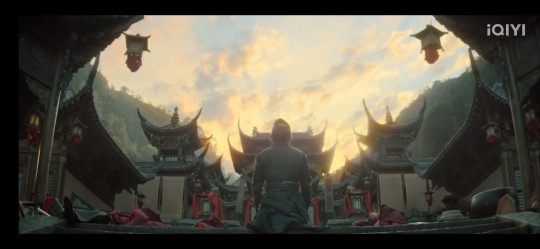
#hanya si#my journey to you#云之羽#寒鸦肆#yun zhi yu#yun weishan#mjty#mjty fic#yun que#i have way too many feelings for such a minor character#one of the most intriguing characters in the whole show#my fic#my writing#after not writing for ages i don't know why i've chosen to come back with this fic#i have used the translation of 'hanya' as jackdaw rather than raven#simply because i think jackdaws are somewhat underrated
7 notes
·
View notes
Text
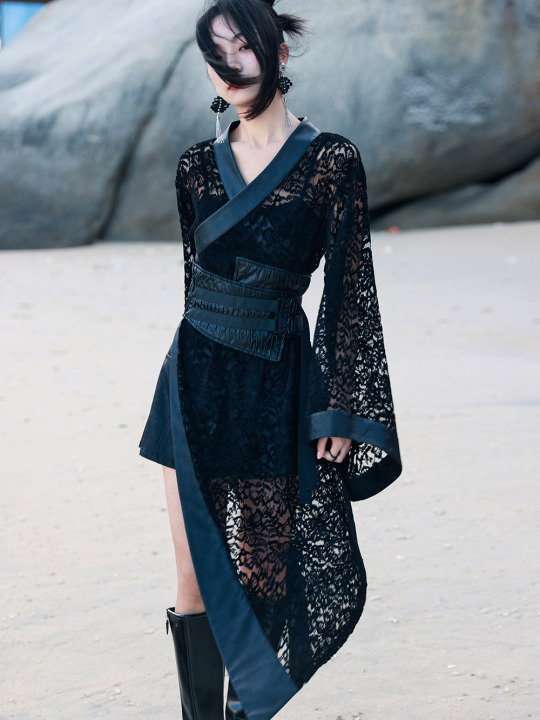

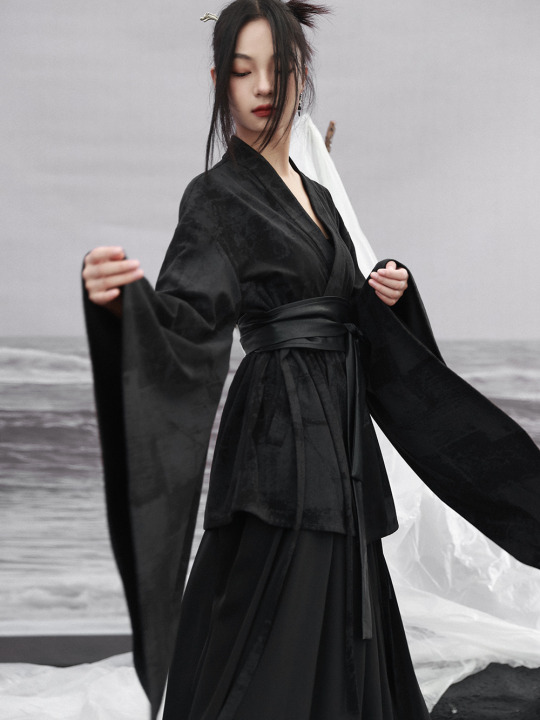



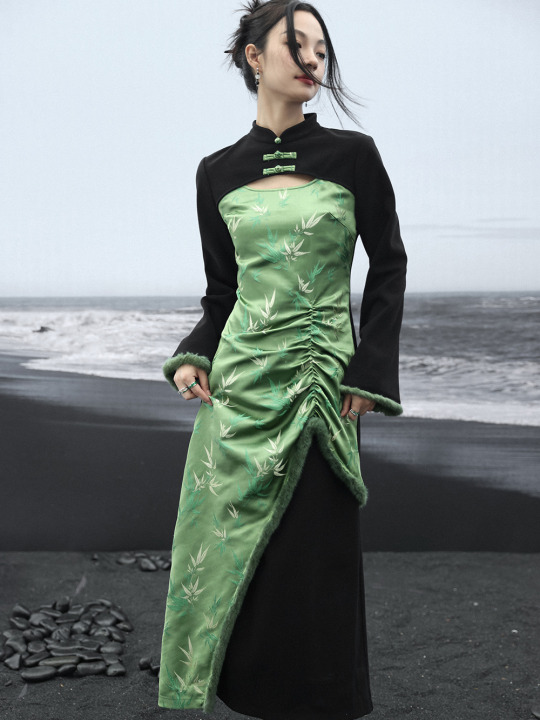
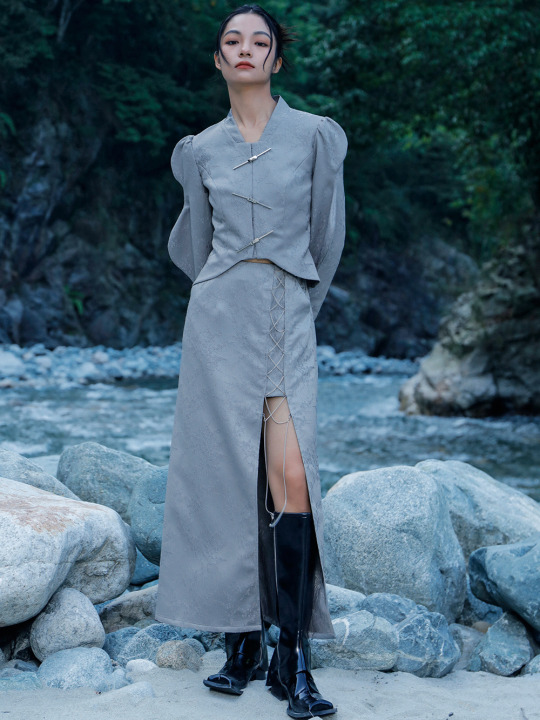

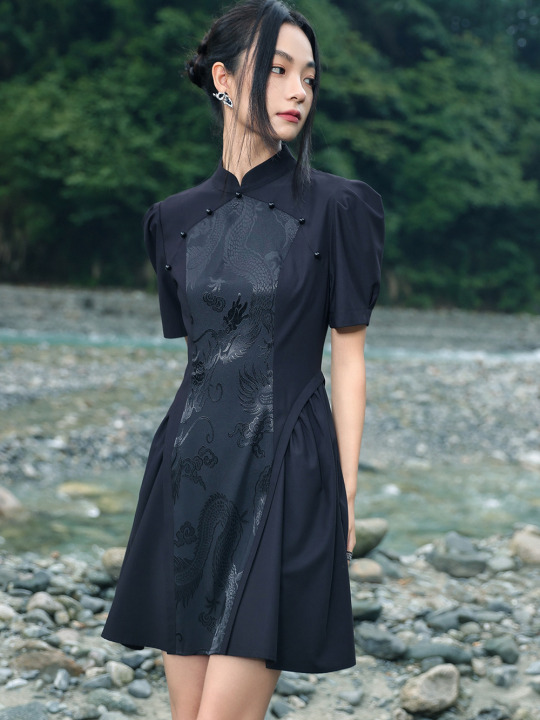




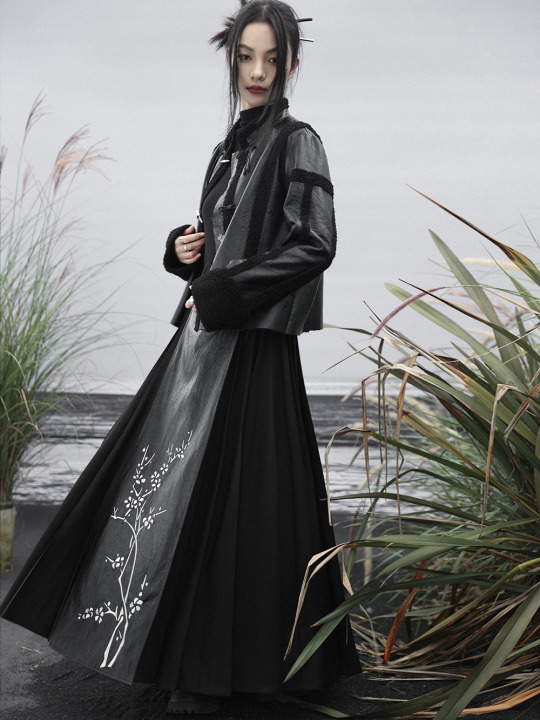
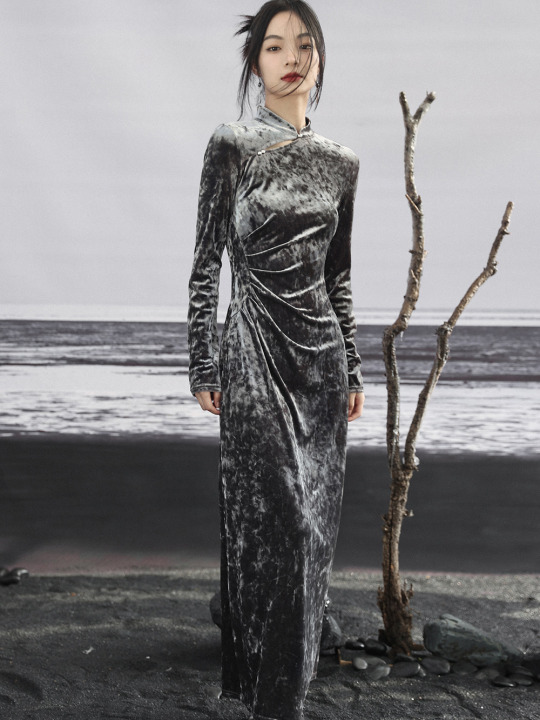
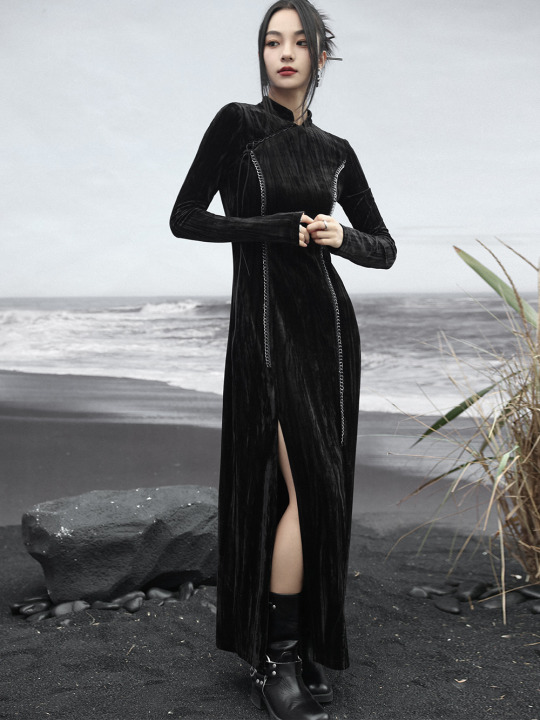
Since there's quite a lot of interest in Chinese-inspired cyberpunk and adjacent aesthetics, just wanted to share these neat "Chinese style meets the Matrix"-esque looks from popular brand 大青龙肆/Da Qing Long Si. There's also an English website here.
1K notes
·
View notes
Text
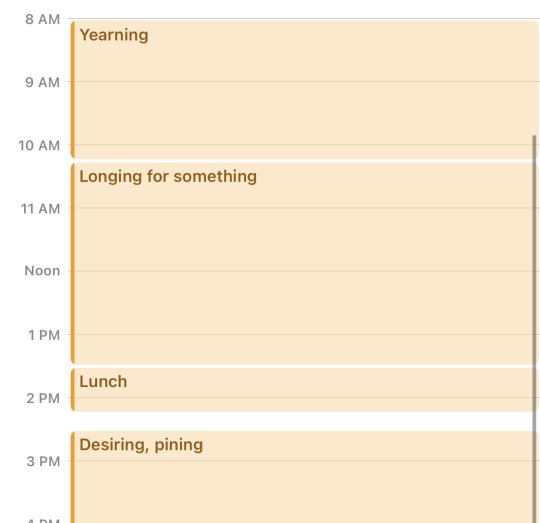
Xie wei's tight schedule
**instead of something its obviously Ning'er
49 notes
·
View notes
Text
#tantai jin#no competition#he beats li lianhua by a vast amount#and every ml in lost you forever#and every other tortured cheng yi character#ive never known angst until i watched tteotm#god of devils? more like god of angst
92 notes
·
View notes
Text
Princess Hua Hua


I DON'T THINK I'M OKAY!!!!!!!!!!! AAAAAAHHHHHHHHH!!!!!!!!!!!!!!!!!!
💖💖💖💖💖💖💖💖💖
Mars Concert 2023 - Shanghai day 1 - 230927
Anniversary concert!!!!!!
https://weibo.com/3815166594/4950664138981506
13 notes
·
View notes
Text
Li Lianhua, practitioner of suzhoukuai lol
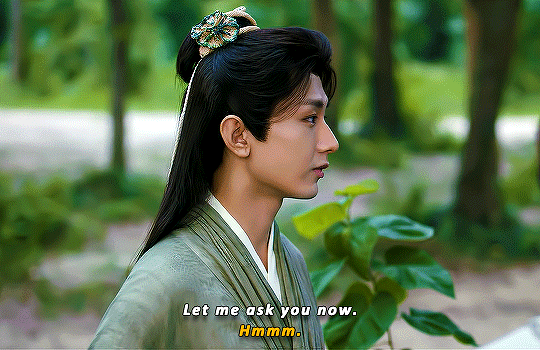



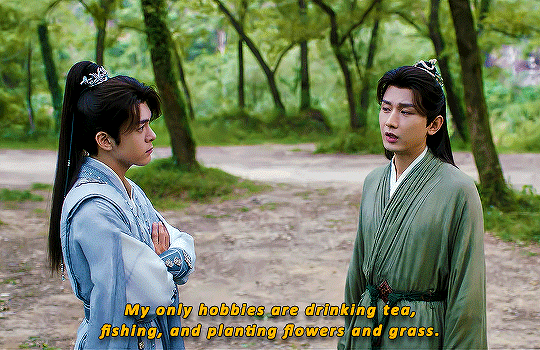
I must know everything about you.
380 notes
·
View notes

